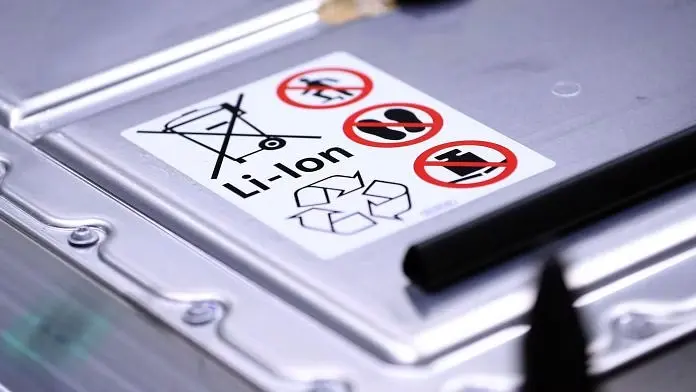
What is Germany WEEE Registration?
What is weee certification?
WEEE: Waste Electrical and Electronic Equipment (WEEE) refers to the directive for the recycling of discarded electrical and electronic equipment. To properly manage the vast amount of electronic waste and recover valuable resources, the EU passed two significant directives in 2002 that affect electronic and electrical equipment products: WEEE (EU Recycling Directive) and RoHS Directive (EU Environmental Protection Directive). In 2016, the German environmental department issued laws requiring foreign e-commerce platforms selling on Amazon to register for electronic equipment recycling. Amazon must order sellers to stop sales before obtaining a WEEE recycling code.

Which Products Require WEEE Certification?
Taking the German market as an example, weee registration primarily targets a specific category of products. According to official data, the weee directive applies to ten categories of electronic and electrical products: large household appliances, small household appliances, IT and communication equipment, consumer electronics, lighting equipment, electrical tools (excluding large fixed industrial tools), toys, leisure and sports equipment, medical devices, monitoring and control instruments, and vending machines.
Which Countries Require WEEE Certification?
Germany, the UK, France, Italy, Spain, Sweden, the Netherlands, Denmark, Portugal, Poland, Belgium, Finland, Luxembourg, Austria, Ireland, etc.
WEEE is Mandatory
Currently, Amazon enforces strict closure policies for cross-border e-commerce sellers. Products without a registeRED WEEE code will be forcibly removed from listings. Among all European countries, Germany has the strictest environmental requirements, so WEEE registration is essential!
Consequences of Not Registering WEEE:
Without WEEE registration, listings may be blocked by Amazon. In severe cases, if a seller is doing well, competitors may target them. If the product lacks the crossed-out trash can symbol or is not registered for recycling in Germany, competitors may hire German lawyers to demand Amazon stop selling the product and initiate court proceedings to destroy all the seller's products on Amazon. This resULts in the seller not only losing all inventory but also incurring legal fees and destruction costs, effectively pushing the company out of the German market.
What is the Purpose of WEEE Certification in Germany?
End-user electronic waste must be sorted for recycling and reuse (environmental protection, reducing waste dumping in developing countries).
What Products Need to be Recycled?
Products that operate based on electrical energy.
Which Appliances Need WEEE Registration? How are They Classified?
- Class 1: Heat Exchangers - Heat exchangers (any size) with integrated circuits that use substances other than water, such as gases, oils, and refrigerants, for cooling, heating, or dehumidification.
- Class 2: Displays - Screens and monitors (any size) used to display images and information on electronic screens, regardless of screen size.
- Class 3: Lamps - Lamps (any size) are facilities used to produce light sources. These should be understood as light sources that can be installed or replaced by end-users.
- Class 4: Large Electrical Equipment - Equipment with at least one external dimension exceeding 50 cm that is not covered by classes 1-3.
- Class 5: Small Electrical Equipment - Equipment with a maximum external dimension of ≤50 cm that does not belong to classes 1-4 or 6.
- Class 6: Small IT and Telecom Equipment - Electronic devices intended for collecting, transmitting, processing, storing, and presenting information, with a maximum external dimension of ≤50 cm.
How Does the EAR (WEEE Directive Authority) Supervise?
If EAR discovers violations, or if the German Environmental Association/competitors directly report, the following actions may occur:
1. Fines: Up to €100,000
2. Confiscation: All profits in Germany
3. Direct prohibition: Sales ban
4. Commissioning lawyers: May apply for court proceedings
What Obligations Do Producers Have?
1. Registration: Step 1: Foreign companies must designate a local German company as their representative (4 to 8 weeks). Step 2: Register and apply for a recycling number (4-6 weeks), submit product brands and categories, and provide estimated tonnage.
2. Bankruptcy Exit Guarantee: An annual guarantee must be submitted that ensures a commissioned company will recycle sold waste electronics in case of bankruptcy or exit from the EU market (must be covered by an insurance company).
3. Monthly and Yearly Reporting: Submit the total weight of sales for the previous month at the beginning of each month, and submit annual sales data reports for the previous year.
4. Waste Product Recycling: Must transport waste containers to designated recycling stations whenever notified by EAR (must be executed by a recycling company).
China JJR Laboratory WEEE Registration Process:
Step 1: Client fills out the registration application form and submits relevant materials to China JJR Laboratory.
Step 2: China JJR Laboratory confirms correctness and issues a contract to the client.
Step 3: Client signs and returns the contract to China JJR Laboratory.
Step 4: China JJR Laboratory provides an invoice to the client.
Step 5: Client pays the invoice amount.
Step 6: China JJR Laboratory submits materials to the EAR certification authority to apply for WEEE registration.
Step 7: EAR certification authority confirms the authorization of China JJR Laboratory to the client.
Step 8: WEEE registration certificate is issued and entered into the German electronic recycling computer query system, completing the registration.
China JJR Laboratory can help enterprises save 30% on certification costs. Welcome to compare!
Email:hello@jjrlab.com
Write your message here and send it to us
 Canada Wireless Device IC Certification RSS-210 Te
Canada Wireless Device IC Certification RSS-210 Te
 FCC Part 15.231 for Wireless Remote Controls and S
FCC Part 15.231 for Wireless Remote Controls and S
 Is SAA Certification Required for Lamps Sold to Au
Is SAA Certification Required for Lamps Sold to Au
 Tablet PC RSS-247 Test Report
Tablet PC RSS-247 Test Report
 Canada ISED Certification RSS-247 Standard Testing
Canada ISED Certification RSS-247 Standard Testing
 What Are the Product Compliance for Amazon Austral
What Are the Product Compliance for Amazon Austral
 Australia IoT Security Compliance
Australia IoT Security Compliance
 V16 Warning Light EU EN 18031 Cybersecurity Certif
V16 Warning Light EU EN 18031 Cybersecurity Certif
Leave us a message
24-hour online customer service at any time to respond, so that you worry!




